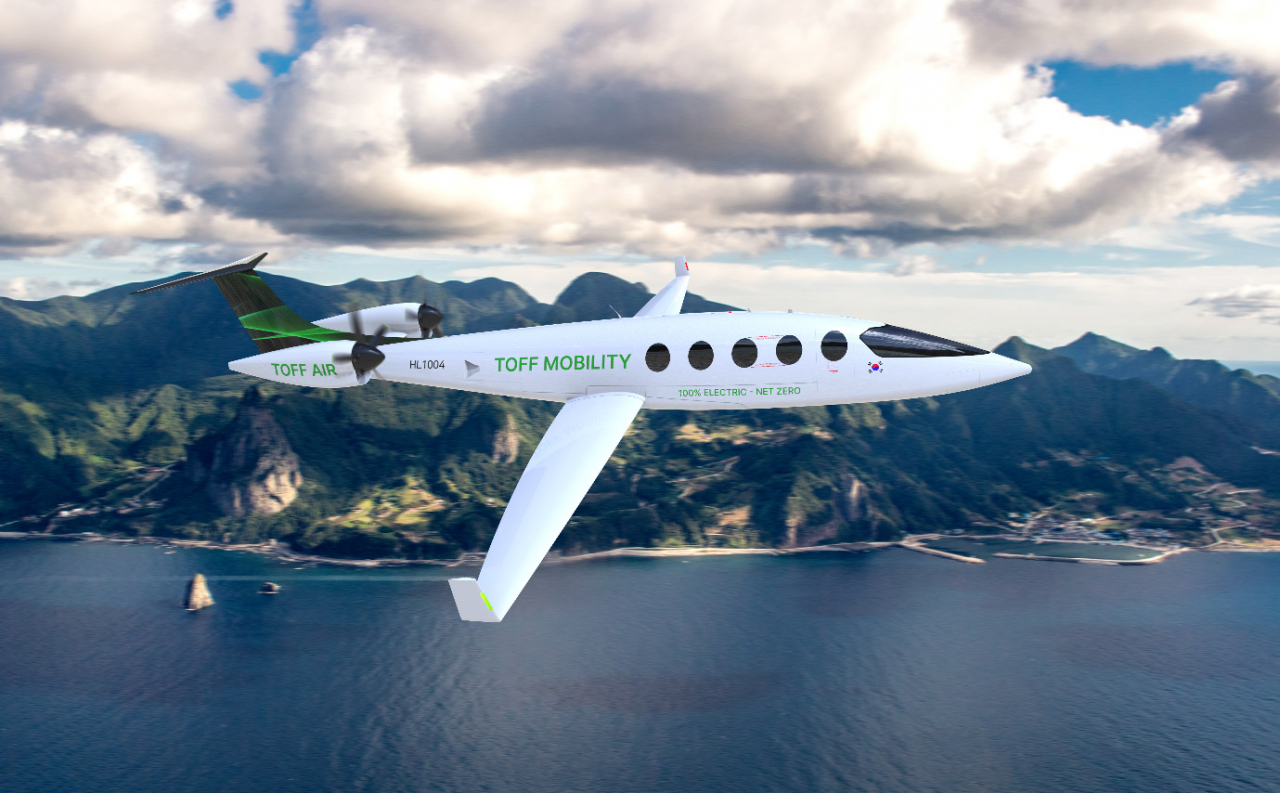 |
European-certified electric airplanes to be introduced at home by Toff Mobility in 2024 (Toff Mobility) |
South Korean air mobility start-up Toff Mobility said Tuesday that it plans to launch Asia’s first airline dedicated to battery-powered electric planes, in a move to reduce carbon emissions in the industry.
Under the plan, Toff Mobility will introduce electric planes certified by the European Union Aviation Safety Agency to start tourism and logistics businesses next year. By 2026, it aims to expand the service to the regional airports and the nation's two islands of Ulleung and Jeju.
The latest move comes amid increasing global calls to provide sustainable solutions for the aviation sector as international travel has started to recover.
According to the World Wide Fund for Nature (WWF), the aviation industry accounts for 2 percent of total global carbon emissions. Without any drastic measures in place to reduce them, greenhouse gas emissions from the industry are expected to soar nearly 10-fold by 2050, the WWF forecasted.
Compared to conventional airplanes powered by fossil fuels, electric passenger planes emit near-zero carbon and reduce noises. Additionally, electric aircraft are also projected to have a competitive edge in terms of price given the reduced costs for fuel and engine maintenance.
In light of such benefits, commercialization of electric planes has already begun in the US and across Europe to achieve net-zero emissions by 2050.
However, new technologies and expertise are high in demand to operate this service at home, as electric plane batteries are sensitive to temperatures, which can lead to various issues due to weather changes across four seasons in Korea.
Currently, the company is in close discussion with a number of relevant organizations to address this problem and secure adequate data to safely run the new service.
“Electric airplanes are the foremost practical step in pioneering a sustainable future for the aviation industry," said Toff Mobility's CEO and founder Jung Chan-young.
“We will continue our endeavors in providing convenient air travel to enhance customer experiences while promptly responding to climate change to achieve carbon-zero tourism."







